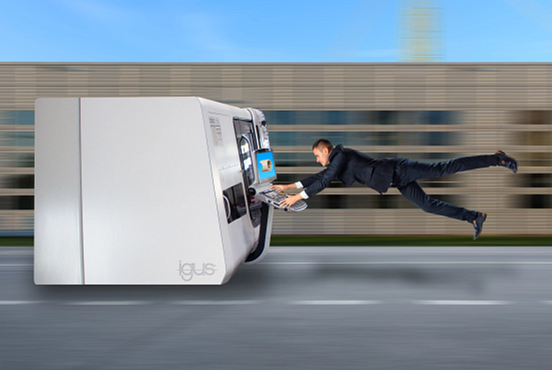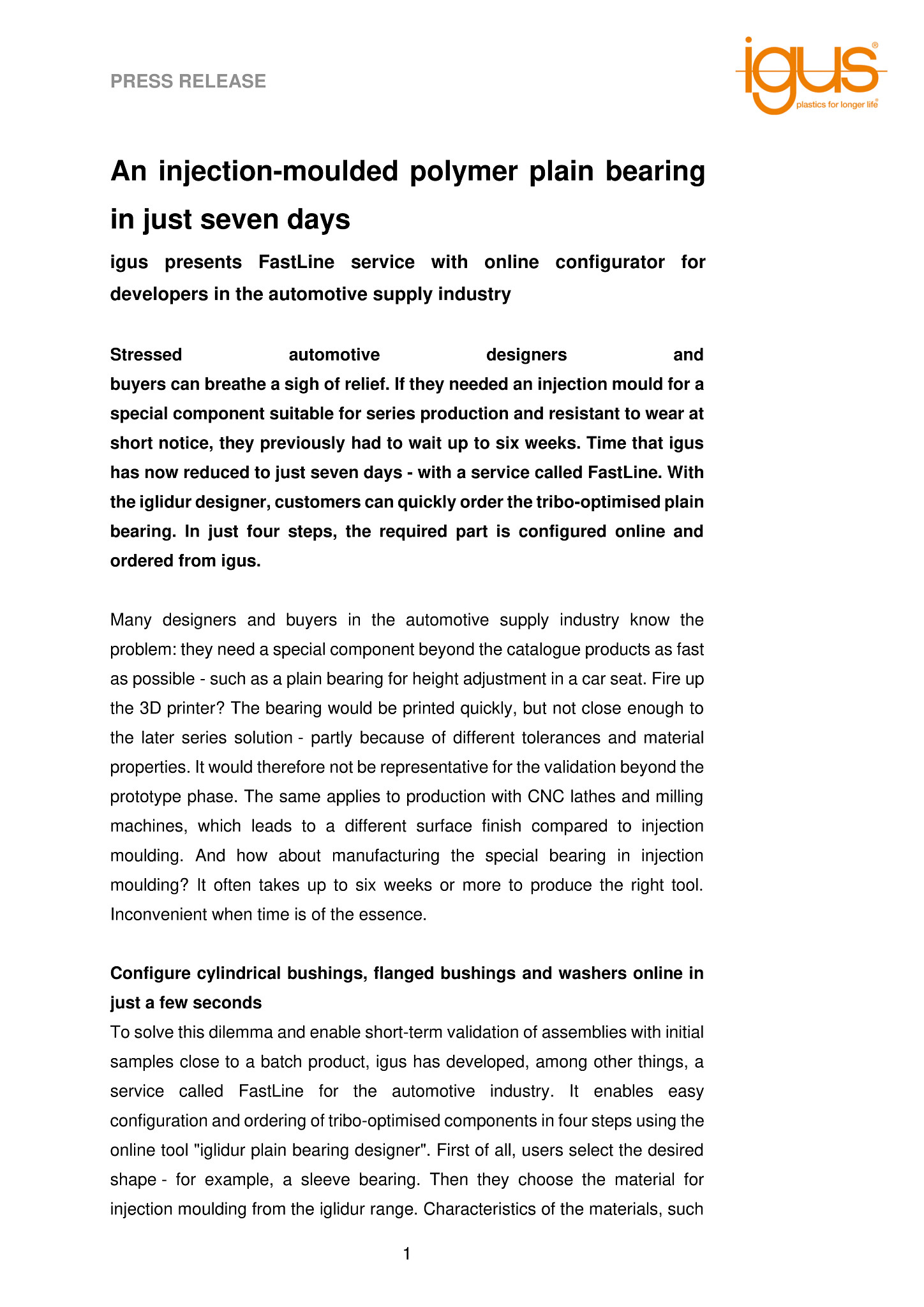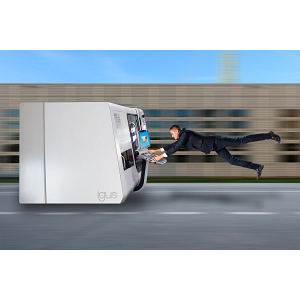An injection-moulded polymer plain bearing in just seven days
Published on: 24th February 2023
igus presents FastLine service with online configurator for developers in the automotive supply industry

Stressed automotive designers and buyers can breathe a sigh of relief. If they needed an injection mould for a special component suitable for series production and resistant to wear at short notice, they previously had to wait up to six weeks. Time that igus has now reduced to just seven days – with a service called FastLine. With the iglidur designer, customers can quickly order the tribo-optimised plain bearing. In just four steps, the required part is configured online and ordered from igus.
Many designers and buyers in the automotive supply industry know the problem: they need a special component beyond the catalogue products as fast as possible – such as a plain bearing for height adjustment in a car seat. Fire up the 3D printer? The bearing would be printed quickly, but not close enough to the later series solution – partly because of different tolerances and material properties. It would therefore not be representative for the validation beyond the prototype phase. The same applies to production with CNC lathes and milling machines, which leads to a different surface finish compared to injection moulding. And how about manufacturing the special bearing in injection moulding? It often takes up to six weeks or more to produce the right tool. Inconvenient when time is of the essence.
Configure cylindrical bushings, flanged bushings and washers online in just a few seconds
To solve this dilemma and enable short-term validation of assemblies with initial samples close to a batch product, igus has developed, among other things, a service called FastLine for the automotive industry. It enables easy configuration and ordering of tribo-optimised components in four steps using the online tool “iglidur plain bearing designer”. First of all, users select the desired shape – for example, a sleeve bearing. Then they choose the material for injection moulding from the iglidur range. Characteristics of the materials, such as maximum ambient temperature and surface pressure, are displayed clearly in the margin of the configurator. After entering the dimensions of the bearing – inner diameter, outer diameter and bearing width – the user immediately sees the total price for the injection-moulding production and can order. STEP files and PDF drawings of the bearing are also available for free download for further planning and designing. And this is how it goes on: after the order is placed, the online tool automatically creates 3D models and other design files, which a special team from the in-house igus tool shop called iform uses to programme CNC machine tools in a semi-automated manner. This means that the machines can start producing the injection-moulding tool faster than ever with minimal manual effort. A process standardisation with short throughput times, which won igus the “Excellence in Production” competition of the machine tool laboratory WZL of the RWTH Aachen University and the Fraunhofer Institute for Production Technology (IPT) in the category “Internal toolmaking from 50 employees”.
Production time drops to seven days
“This interaction of online configuration, machine networking and process automation is a novelty in toolmaking,” says Stefan Loockmann-Rittich, iglidur Business Unit Manager at igus. “As a result, the FastLine service allows us to reduce the production time of injection moulds for cylindrical bushings, flanged bushings and washers in special dimensions that are suitable for series production from six weeks to seven days.” Customers receive the special components accordingly faster and can start validating their assemblies. igus has been active in the automotive industry since 1964. The company supplies over 500 million plain bearings for automotive applications every year. The polymer bearings are used not only in interior systems such as seats, centre consoles or pedals, but also in gearboxes and the thermal management of the drive. In addition to the cost advantages compared to metal bearing solutions, design engineers and buyers appreciate the lightweight quality, the lack of lubrication, the small bearing clearance and the vibration-dampening and thus noise-reducing specifications.



